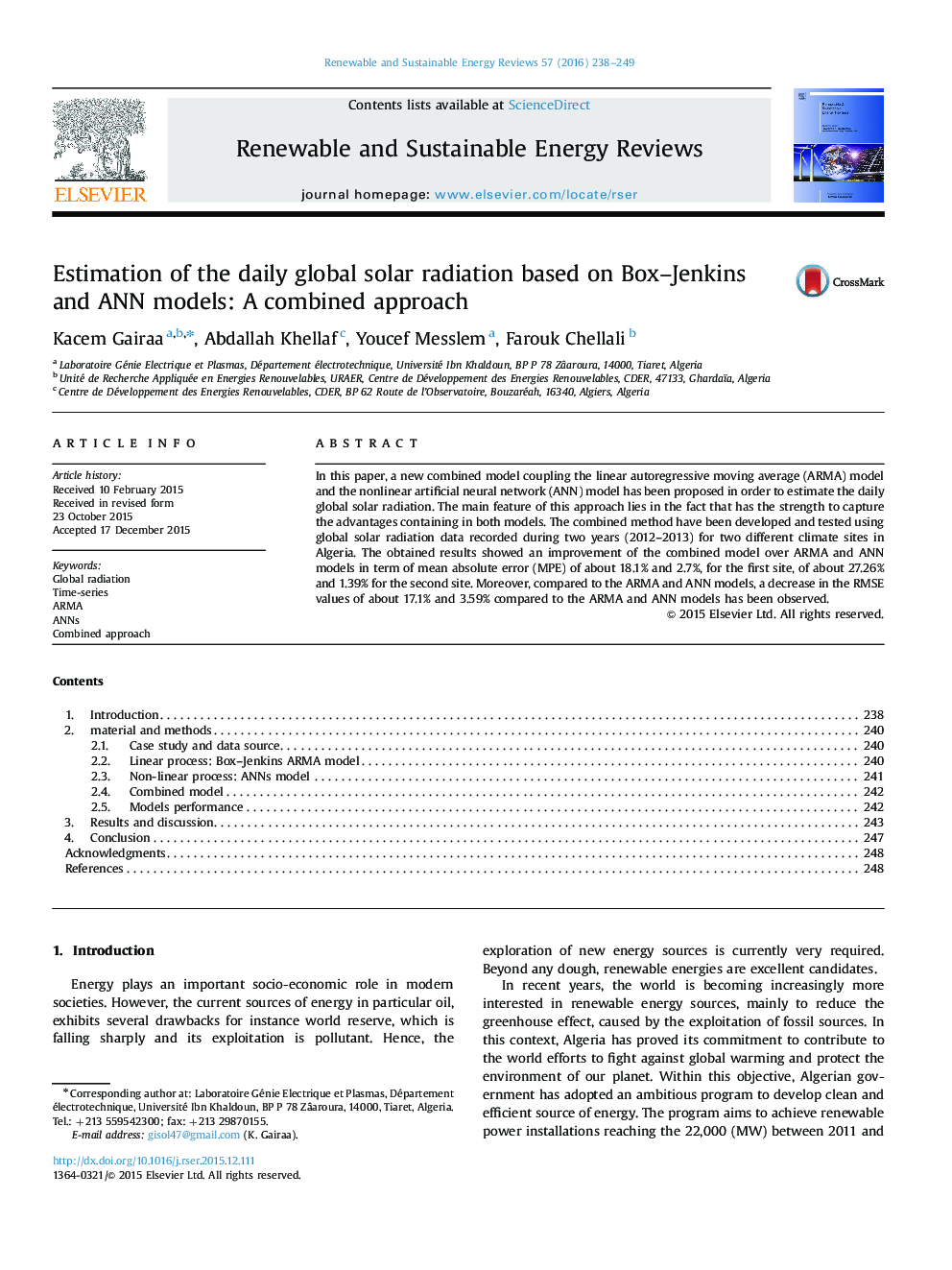| Article ID | Journal | Published Year | Pages | File Type |
|---|---|---|---|---|
| 8114537 | Renewable and Sustainable Energy Reviews | 2016 | 12 Pages |
Abstract
In this paper, a new combined model coupling the linear autoregressive moving average (ARMA) model and the nonlinear artificial neural network (ANN) model has been proposed in order to estimate the daily global solar radiation. The main feature of this approach lies in the fact that has the strength to capture the advantages containing in both models. The combined method have been developed and tested using global solar radiation data recorded during two years (2012-2013) for two different climate sites in Algeria. The obtained results showed an improvement of the combined model over ARMA and ANN models in term of mean absolute error (MPE) of about 18.1% and 2.7%, for the first site, of about 27.26% and 1.39% for the second site. Moreover, compared to the ARMA and ANN models, a decrease in the RMSE values of about 17.1% and 3.59% compared to the ARMA and ANN models has been observed.
Related Topics
Physical Sciences and Engineering
Energy
Renewable Energy, Sustainability and the Environment
Authors
Kacem Gairaa, Abdallah Khellaf, Youcef Messlem, Farouk Chellali,
